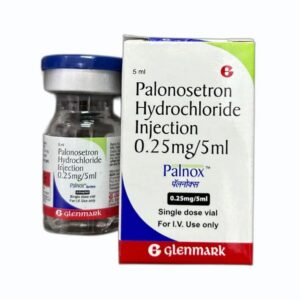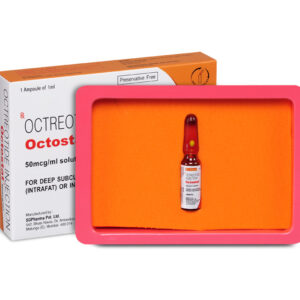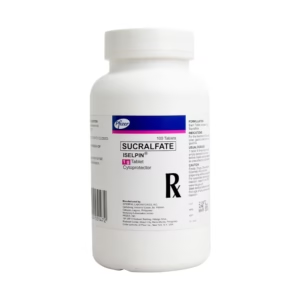-
Palonosetron Hydrochloride
Palonosetron Hydrochloride is a long-acting 5-HT3 receptor antagonist used to prevent nausea and vomiting.
Applications:
-
Prevents acute and delayed nausea/vomiting from moderately to highly emetogenic chemotherapy.
-
Also used for postoperative nausea and vomiting.
Side Effects:
-
Common: headache, constipation, dizziness.
-
Serious (rare): QT prolongation, hypersensitivity reactions.
Br120.00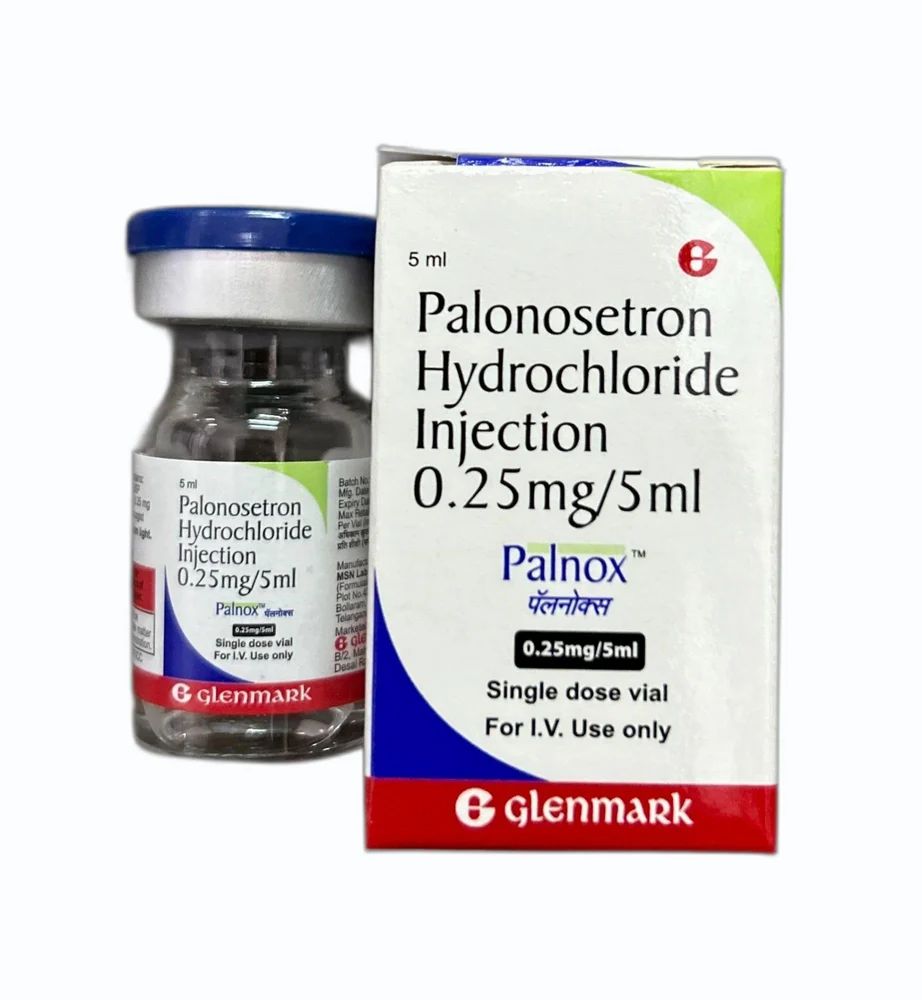
Palonosetron Hydrochloride
Br120.00 Select options This product has multiple variants. The options may be chosen on the product page -
-
Granisetron Hydrochloride
Granisetron Hydrochloride is a 5-HT3 receptor antagonist used to prevent and treat nausea and vomiting.
Applications:
-
Prevents nausea and vomiting from chemotherapy and radiation therapy.
-
Used postoperatively to manage nausea and vomiting.
Side Effects:
-
Common: headache, constipation, dizziness.
-
Serious (rare): QT prolongation, allergic reactions.
Br120.00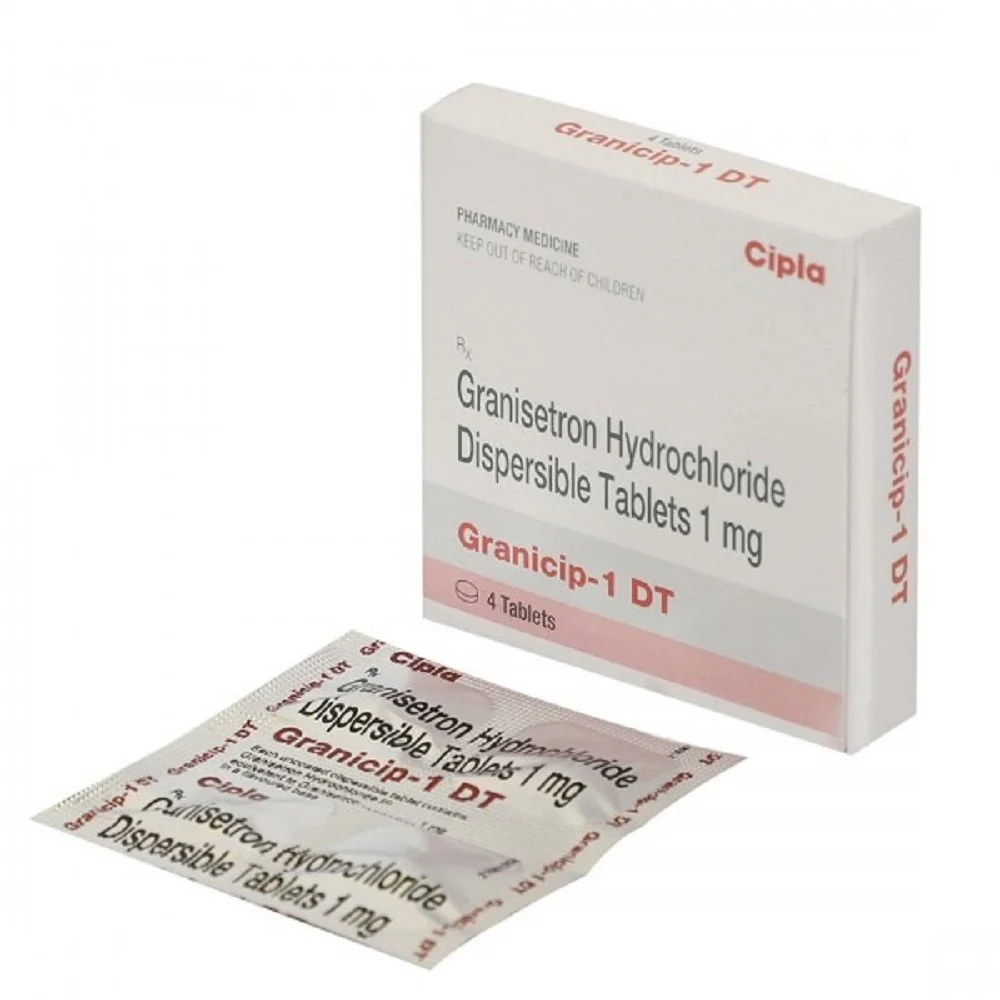
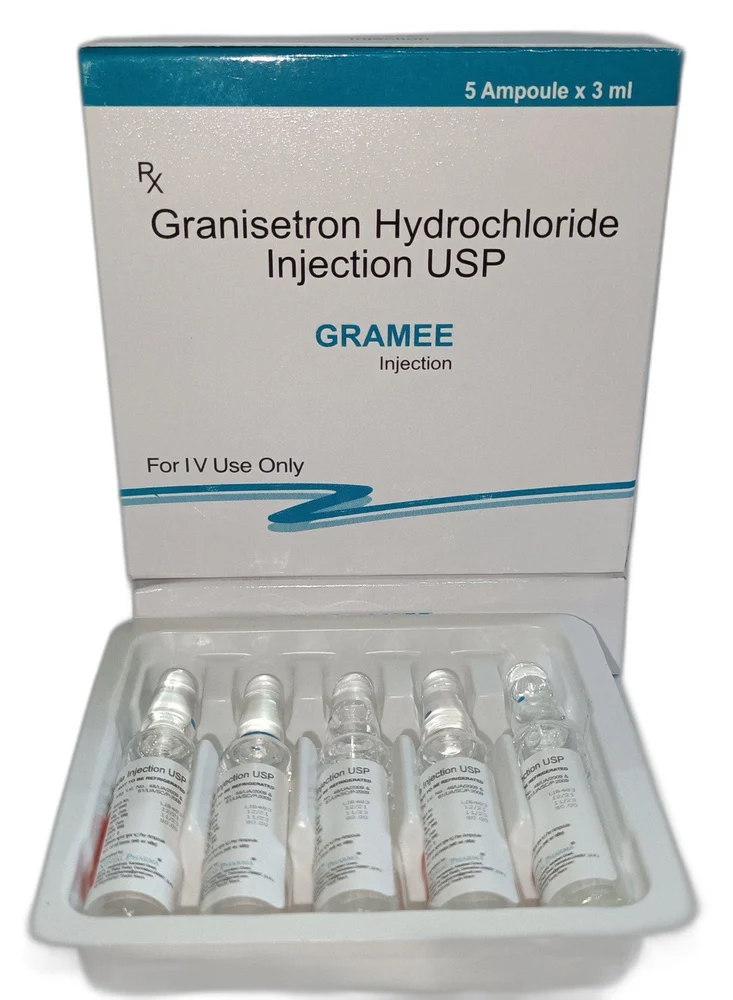
Granisetron Hydrochloride
Br120.00 Select options This product has multiple variants. The options may be chosen on the product page -
-
Mebeverine
Applications:
-
Irritable Bowel Syndrome (IBS): Relieves abdominal pain, bloating, and cramps.
-
Functional GI Disorders: Manages spasms in conditions like diverticulitis.
Side Effects:
-
Common: Mild dizziness, headache, nausea.
-
Rare:
-
Allergic reactions (rash, itching).
-
Constipation or diarrhea.
-
Br120.00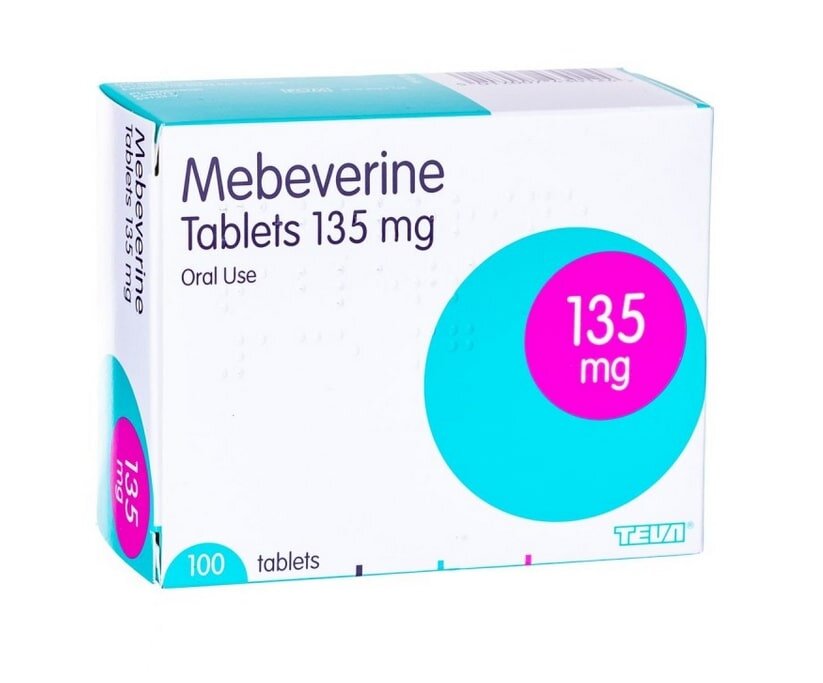
Mebeverine
Br120.00 Select options This product has multiple variants. The options may be chosen on the product page -
-
Drotaverine
Applications:
-
Abdominal Pain: Relieves cramps in IBS, gastritis, or menstrual discomfort.
-
Biliary Colic: Eases spasms in gallbladder/bile duct disorders.
-
Urinary Tract Spasms: Treats discomfort from kidney stones or UTIs.
-
Gynecological Use: Reduces labor pains (off-label) and dysmenorrhea.
Side Effects:
-
Common: Dizziness, nausea, mild headache.
-
Rare:
-
Allergic reactions (rash, itching).
-
Low blood pressure (with high doses).
-
Rapid heartbeat (tachycardia).
-
Br120.00

Drotaverine
Br120.00 Select options This product has multiple variants. The options may be chosen on the product page -
-
Octreotide
Applications:
-
Treats acromegaly (reduces growth hormone)
-
Manages neuroendocrine tumors (controls carcinoid/VIPoma symptoms)
-
Stops severe GI bleeding (esophageal varices, ulcers)
-
Closes pancreatic/intestinal fistulas
Side Effects:
-
Common: Nausea, diarrhea, gallstones, blood sugar changes
-
Serious (rare): Heart rhythm issues, thyroid dysfunction
Note: Requires monitoring for gallbladder and metabolic effects. Available in short-acting (daily) and long-acting (monthly) forms.
Br120.00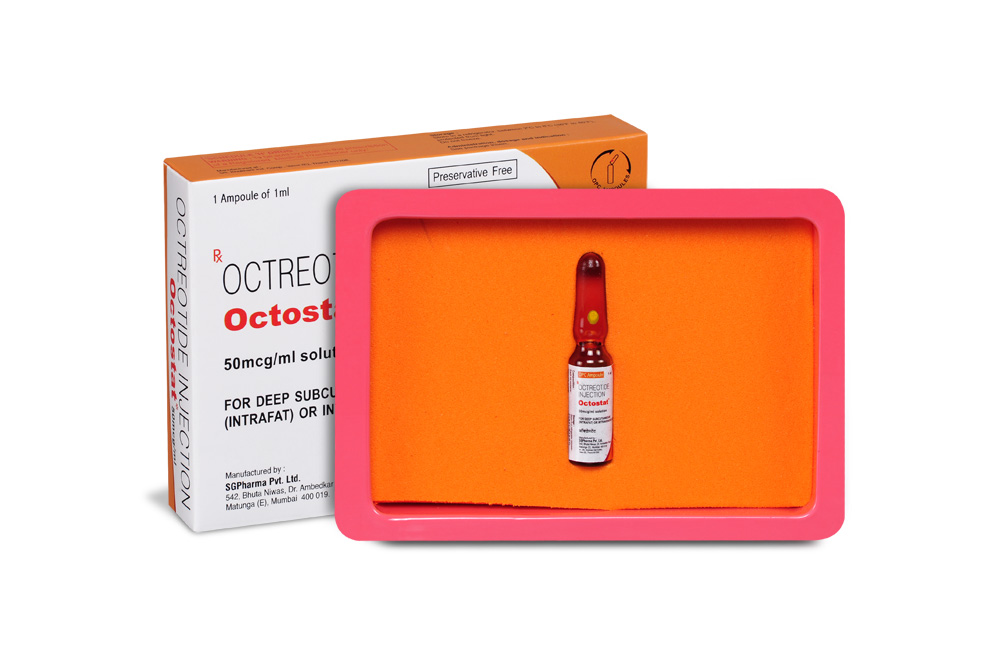
Octreotide
Br120.00 Select options This product has multiple variants. The options may be chosen on the product page -
-
Sucralfate
Sure! Here’s a similar overview for sucralfate:
Applications:
- Used primarily to treat and prevent peptic ulcers by forming a protective barrier over ulcer sites in the stomach and intestines.
- Often prescribed for gastroesophageal reflux disease (GERD) and to manage conditions involving damage to the stomach lining, like gastritis.
- Can help in the healing of esophageal ulcers, as well as ulcers caused by nonsteroidal anti-inflammatory drugs (NSAIDs).
Side Effects:
- Common side effects include constipation, dry mouth, and mild stomach discomfort.
- Rare but serious side effects can include allergic reactions, severe abdominal pain, or difficulty breathing.
- Prolonged use may lead to malabsorption of nutrients like phosphate, which can cause low phosphate levels.
- In some cases, patients may experience dizziness or headache.
Sucralfate is typically considered a safe treatment, but like with any medication, it’s important to monitor for any adverse effects, particularly with long-term use.
Br120.00
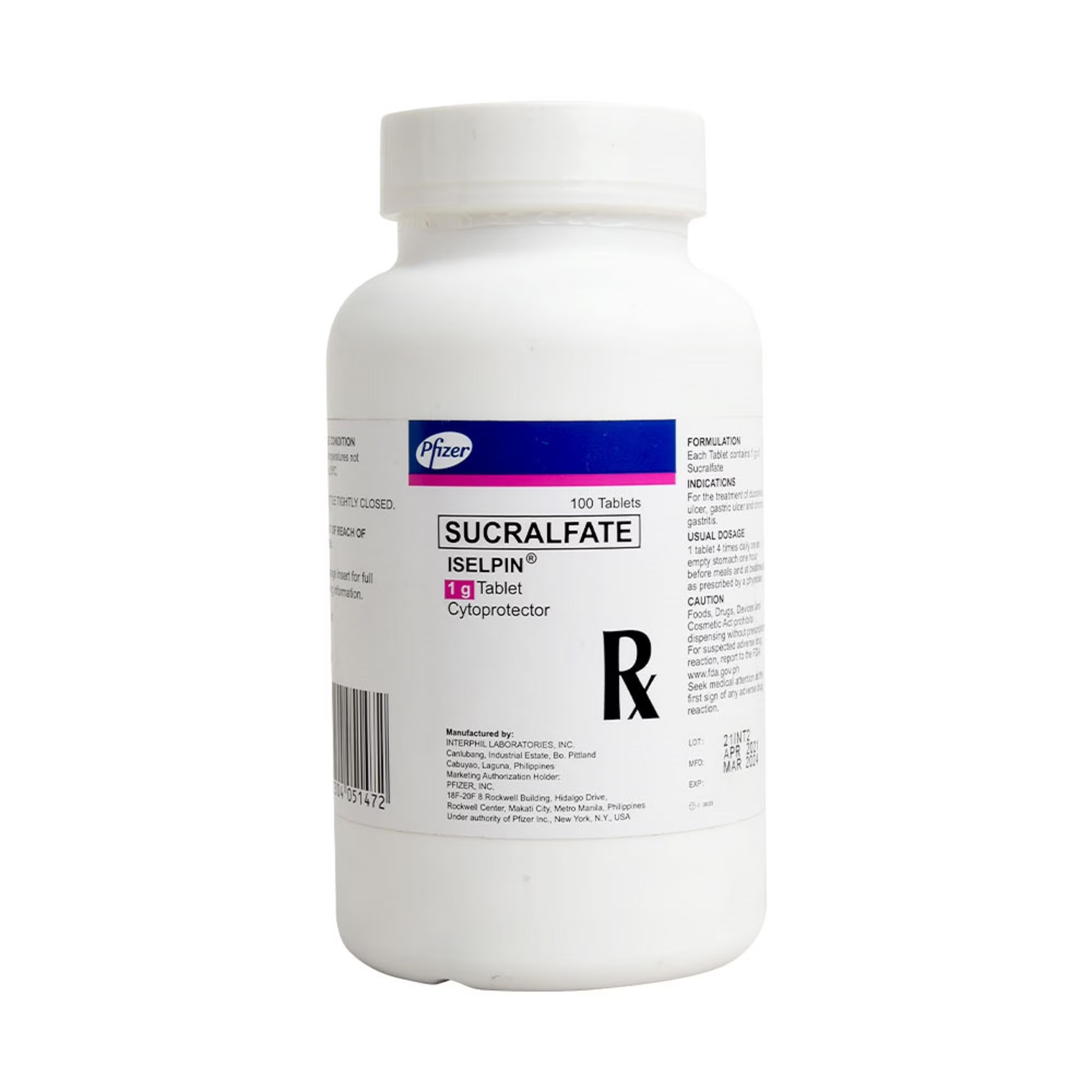
Sucralfate
Br120.00 Select options This product has multiple variants. The options may be chosen on the product page

